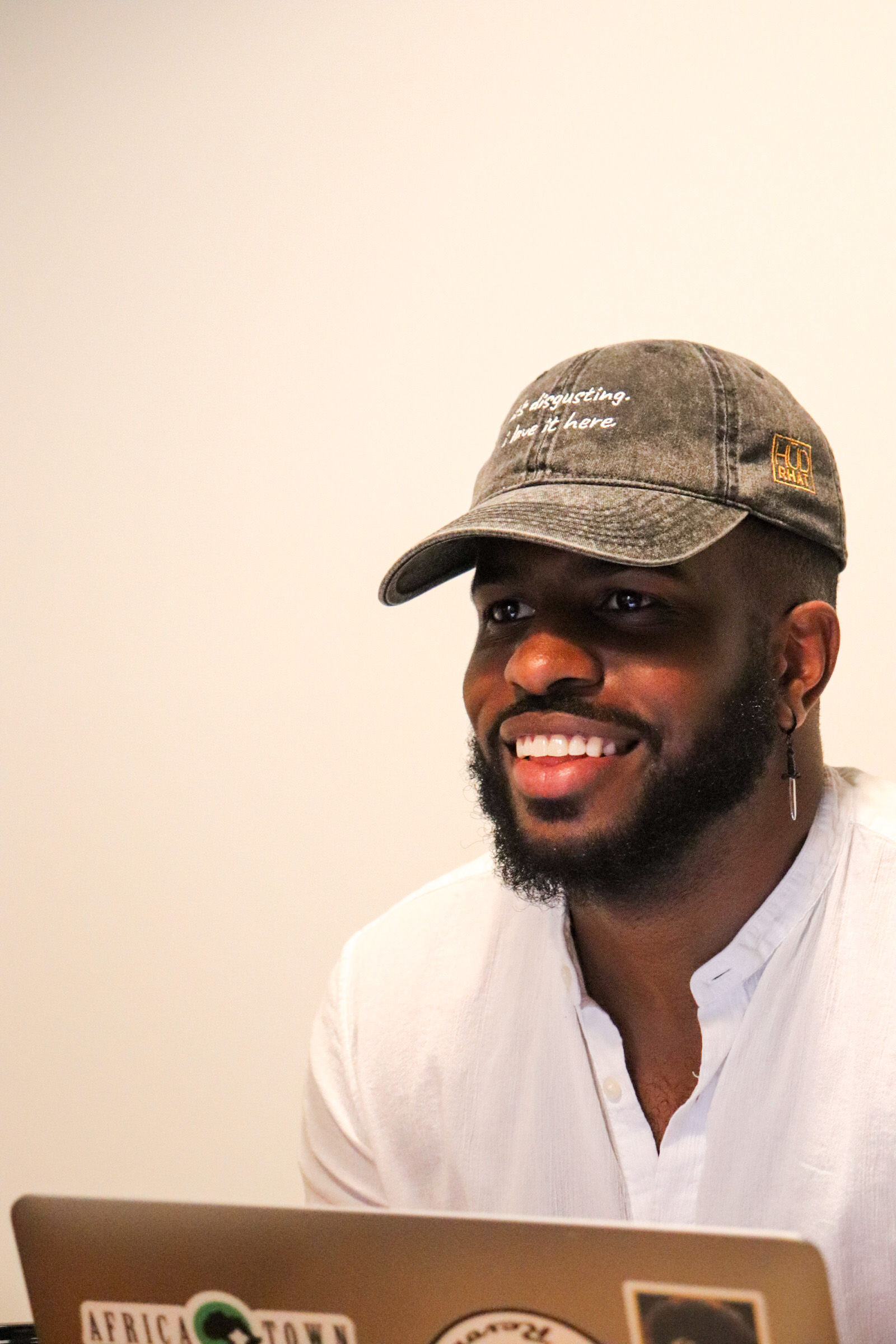King’s Dream Goes Green with WA Department of Commerce: Cannabis Business Mentorship Services.
- Jawan Harris

- Oct 7, 2023
- 7 min read
Updated: Oct 7, 2024
Marijuana usage has been legal in Washington State for over a decade. However, the WA Department of Commerce still recognized the need to provide mentorship services to aspiring Cannabis Retail Licensees through the Social Equity in Cannabis Technical Assistance Mentorship Program, leading them toward greener pastures and restorative justice.

Through the Office of Economic Development and Competitiveness (OEDC), King’s Dream Team designed specialized workshops focused on cultivating a thriving Cannabis business and crafted comprehensive consulting services tailored to the regulatory challenges and restorative justice for the communities harmed by the War on Drugs.
The Deliverables.
Timeline & Budget:
6 months; $40,000.00
Technical Assistance: Business Consulting Services
Program applicants gained free access to a variety of support services to program participants from disproportionately impacted areas, or people and communities who have been deeply impacted by high poverty and enforcement of cannabis prohibition who are interested in starting cannabis business enterprises.
Cannabis Industry Workshops
Each workshop focused on engaging with mentees to discuss first-hand experiences and overcoming industry hurdles.
Building Your Brand Identity –Establishing a unique brand in the cannabis industry can be difficult. Your brand is the first point of contact with prospective patrons, and it can make or break their decision to become a loyal customer. King's Dream offers a workshop that teaches how to develop a distinctive brand that resonates with your target audience, sets you apart from the competition, and aligns with your company's values.
Building a Financial Base – To underline the importance of financial sustainability and present guidelines for financial projections. The live session included a presentation examining projected sales, budgeted expenses, a balance sheet, cash flow, and, more importantly, how to read and assess them.
Cannabis in Community: A Circular Economy - At King's Dream Consulting, we're exploring the circular economy concept and its relevance to the cannabis industry. A circular economy is a system that promotes sustainability by minimizing waste and maximizing resource usage. This is achieved by reducing waste and pollution, maintaining the use of products and materials, and regenerating natural systems. In the cannabis industry, adopting a circular approach can involve sustainable growing practices, minimizing packaging waste, and repurposing cannabis waste to create valuable products like compost and hempcrete. By embracing circular practices, the cannabis industry can reduce its environmental impact and pave the way for a more sustainable future.
Marketing Your Cannabis Business - Adhering to regulations governing the marketing of cannabis (WAC 314-55-155)is paramount to establishing a solid connection with your customers and steering clear of potential financial penalties. This education session focused on digital marketing in cannabis and highlighted the critical nature of the ongoing analysis, such as user experience, customer satisfaction, market research, and SEOs.
Project Administration
Collaborate with mentees, mentors, the program Facilitator, and the Department of Commerce throughout the program. Attend all program events, including the kick-off, mentor meetings, and closeout events, virtually or in person. Maintain office hours, email, and telephone communication with mentees for the duration of the program. Act as Subject Matter Expert regarding cannabis business operations. Provide in-person and online instruction and mentorship, allowing for accessibility to meet the needs of the mentees. Provide monthly progress reports detailing the status of each mentee served.
The Client.
The mission of the Washington State Department of Commerce is to strengthen populations and businesses in Washington as a leading state agency charged with enhancing and promoting sustainable economic vitality. With over 100 programs with diverse portfolios and various state boards and commissions, they're all focused on helping residents achieve positive growth.

Key customers include businesses, local governments, tribes, and community-based organizations. They also play the crucial role of convening numerous local, state, regional, and federal partners and stakeholders, both public and private. They collaborate to support the Governor’s priorities and achieve shared goals and objectives for the people of Washington.
When it comes to using marijuana, there has been a long-standing issue of racial inequality that has affected minority communities for generations. This problem dates back to 1971, during the presidency of Richard Nixon, when the United States declared a "War on Drugs." Unfortunately, this "war" primarily impacted impoverished communities in America, with People of Color being the main targets. The government-sanctioned stigmatization led to devastating consequences for over-policed urbanized districts. For example, data before legalization in Washington state indicates that African Americans were 2.8 times more likely to be arrested for marijuana possession than non-minorities.
Though the State of Washington legalized recreational cannabis in 2012, the aftereffects of the War on Drugs still plague marginalized communities a decade later, even when it comes to opening up a lawful business in the industry. In 2020, the Washington State Legislature determined that additional efforts are necessary to reduce barriers to entry into the cannabis industry for individuals and communities most adversely impacted by the enforcement of cannabis-related laws.
The Problem.
On a national level, Black cannabis entrepreneurs account for less than 2% of the nation’s cannabis businesses.
One bill, SB 5080, sent to Washington state Gov. Jay Inslee’s desk and then passed, aims to increase racial diversity in the state’s licensed cannabis businesses — and to support the communities most harmed by past drug laws.
Black Excellence in Cannabis, headed by Peter Manning, advocated for the legislation. This cause was personal to Peter, as his cousin was arrested and sent to state prison for smoking a joint at a bus stop southwest of Seattle in 2005. “They charged him with having drugs in a school zone. They gave him two years. My cousin has never been the same since,” Manning said.
The pre-legislation statistics of African Americans being nearly three times more likely to be arrested than White people for possessing cannabis, despite adult use being similar across racial and ethnic groups, reared its ugly head again.
For Black applicants looking to get a Retail Cannabis license, the numbers aren’t looking too good, either. Records from the Washington State Liquor and Cannabis Board show only 4% of the state’s new licensed cannabis businesses are Black-owned. Despite legalization, barriers are still hindering people of color.
Now, advocates are celebrating the passage of legislation aimed at addressing these problems.
The bill allows regulators to award a total of nearly 100 social equity retail licenses, along with new producer and processor licenses. Applicants must show that they or their families were harmed by prior drug laws and lived in areas with higher drug arrests and poverty rates.
Mike Asai, who is also with Black Excellence in Cannabis, showed his enthusiasm for the bill. Asai himself was denied a license for his medical cannabis dispensary in 2016. He is eagerly applying for one of these new licenses.
“I meet a lot of the criteria as a social equity applicant and as a pioneer in the medical cannabis days, and very hopeful that I will obtain a license,” he was quoted as saying. There are many in the community who hope that the new licenses will create generational wealth and repair the harms of previous drug laws.
"Black and brown communities should feel the bulk of this bill,”. “It should create opportunities for them to profit on something that once oppressed them. Straight up.” Said Raft Hollingsworth, operator of The Hollingsworth Cannabis Company, a licensed producer and processor in Shelton, Washington, since 2013. He also served on the Social Equity in Cannabis Task Force, which made recommendations to the WA Liquor and Cannabis Board to address social equity issues.
But, these new licenses will be competing in a very tough market. With a surplus of marijuana, the prices are down, but the product number is up. This means that new businesses will have to create a great product to stand out amongst the fray. This brings up a new concern – BIPOC entrepreneurs breaking into the cannabis space that’s overcrowded while fighting against racial biases at the same time.
This is why the SB5850 bill grants 100 licenses each for retailers and processors but just 10 for new growers.
With the newly passed bill, BIPOC entrepreneurs needed resources that would help them gain their retail license after decades of being shut out within the marijuana industry. Commerce wanted to provide tools that BIPOC owners would need to succeed, but they needed help.
The Solution.
As a result of the scarce resources to help BIPOC entrepreneurs enter the cannabis industry, the Social Equity in Cannabis Task Force was formed, allowing approximately 41 additional cannabis retail licenses to be issued for social equity purposes.
"From the onset of the project, we recognized the challenge of overcoming social stigmas on all fronts. Regardless of one's personal use of cannabis, it is widely accepted that the Black and Brown communities were unfairly impacted during the War on Drugs and the subsequent emergence of wealthy, White-owned cannabis corporations." - Jawan Harris, King's Dream Business Consulting
Additionally, the Washington State Department of Commerce partnered with the Liquor and Cannabis Board (LCB) and Make Green Go! to create the Social Equity in Cannabis Technical Assistance Program, providing support for those interested in creating new cannabis ventures and applying for the Social Equity licenses.
The program consists of an online Learning System Module to hire firms like King's Dream Consulting to help educate potential business owners on business planning and development and one-on-one mentoring for applicants navigating the complexities of licensing a retail cannabis business. The online program also helps eligible applicants prepare for the LCB Social Equity license application process.
The Result.
After looking through a talented pool of proposals, Commerce selected King’s Dream Business Consulting to offer mentorship and consulting services to BIPOC entrepreneurs pursuing Cannabis Retail licenses through the Social Equity in Cannabis Technical Assistance Resource program. King’s Dream's extensive portfolio of working with businesses that have been historically impacted by high poverty and gentrification proved most useful in assisting with this high-profile project.
Media gallery.
Want to be our next success story or looking to grow your small cannabis enterprise? Contact us today for a free consultation.

Rachel Estes is a skilled copywriter with a talent for crafting captivating and informative articles and blogs. Her passion for keeping readers informed and inspired shines through her writing, making her an invaluable asset to any project she takes on.






















Comments